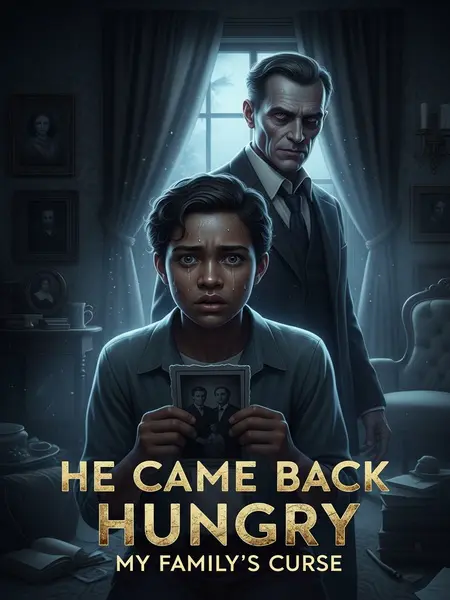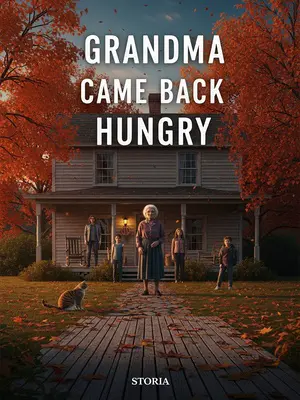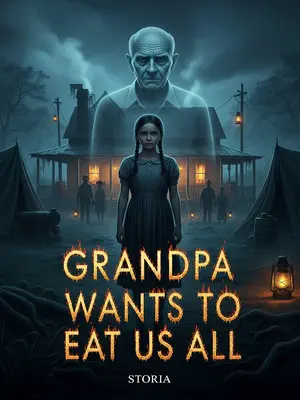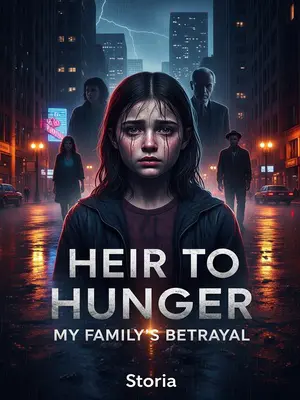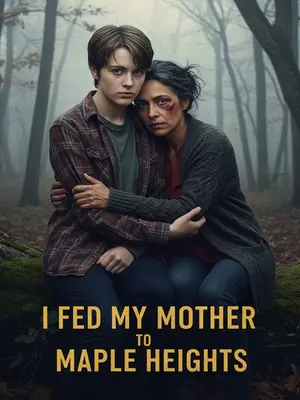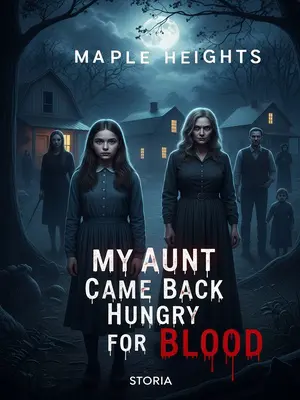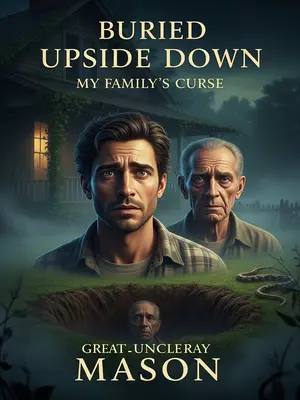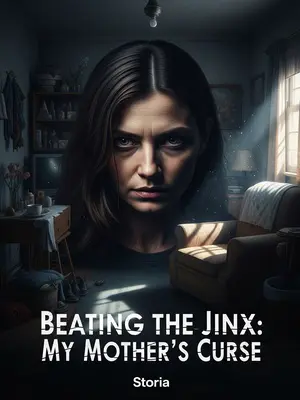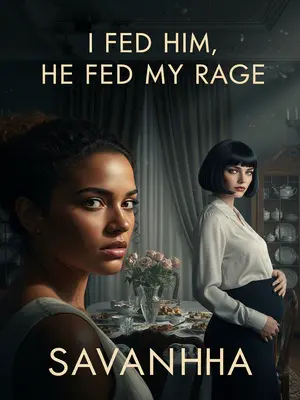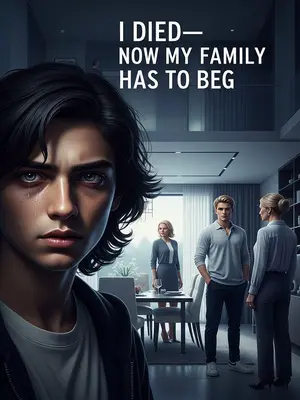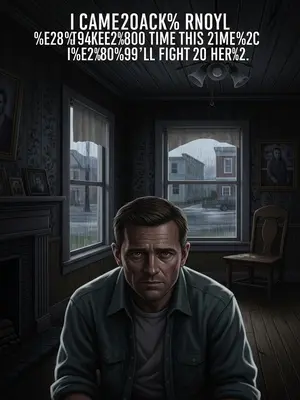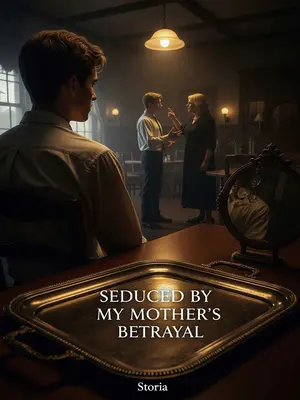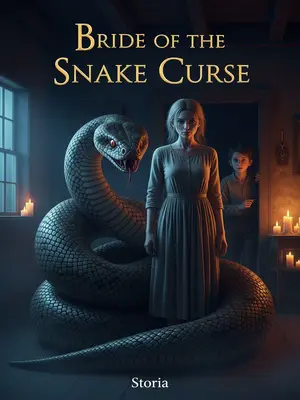Chapter 1: The Bone Flute Bargain
My great-grandfather was stingy his whole life, and now, finally, he was gone for good.
Folks around here always joked he could pinch a penny so hard Lincoln would holler. Even when I was a kid, I could tell his pockets were deep, but his hands never left his sides. So when he finally passed, the air in the house felt lighter, like a window had been opened after a long winter—I swear, you could feel it.
But even on his deathbed, he never told the family where he’d hidden his money.
He’d just lie there, lips pressed together—silent for a beat—eyes glinting with mischief, like he was taking the secret to his grave. The nurses said he smiled right up to the end—like he was still one step ahead of us all.
My grandfather and his brothers, desperate, made a bone flute just for this, hoping they could call him back and finally get an answer.
It was the kind of thing you only hear about in old family stories, the sort folks whisper about after a couple whiskeys. The flute was carved from a cow bone, yellowed with age, and nobody ever said exactly where it came from. But they all swore it could call back the dead—at least, the ones who still had unfinished business.
Great-grandpa handed over the hidden money. Still, he refused to leave. My stomach twisted. I remember thinking: this wasn’t how it was supposed to go.
He sat in his old armchair, grinning that same sly grin, fingers drumming on the armrest as if he’d never left. The house felt colder, somehow—like a draft you can’t quite shut out. The rest of the family tried to ignore it, but nobody slept easy that week.
It wasn’t until family started disappearing one by one—and my great-grandfather kept getting younger—that I realized: wait, something’s wrong here.
The air in the house changed, thick with something I couldn’t name. First, Uncle Lester stopped coming to dinner. Then Aunt May’s laughter vanished from the kitchen. Great-grandpa’s hair darkened, his back straightened, and he started wearing Grandpa’s old boots. That’s when I started to wonder—what exactly did we bring back?
What the bone flute brought back might have been my great-grandfather…
Or it might have been something else…
Sometimes, late at night, I’d hear scratching at my window, and I’d pull the covers up to my chin, praying it was just the wind. But honestly, deep down, I knew better.
Today was my great-grandfather’s hundredth birthday. At the dinner table, surrounded by his children and grandchildren, he laughed so hard, he started choking right there at the table.
The whole family had gathered, the house packed tighter than a church on Easter Sunday. We’d strung up paper lanterns, set out the good plates, and roasted enough pork to feed half the county. Great-grandpa laughed so hard at one of Uncle Earl’s old war stories that he started coughing, face turning red as a beet. Before anyone could react, he slumped forward, his plate clattering to the floor.
When my grandfather finally pried the chunk of pork from his throat with his cane, he flicked it away and said it was a good death—something to celebrate.
He held up the greasy bit of meat like a trophy, wiping his brow with the back of his hand. “Well, that’s one way to go out,” he said, voice cracking just a little. For a second, nobody knew whether to laugh or cry.
“Don’t look so glum! Go light some sparklers—your great-grandpa died rich as a king, we ought to celebrate.”
He forced a smile and nudged me with his elbow, trying to lighten the mood. The smell of whiskey clung to his breath, and his eyes were shining with something wild—maybe relief, maybe something else. For a second, I wondered if he was trying to convince himself, too.
My grandfather nudged me again, making me stumble, and told me to hurry to the porch and light the sparklers. He and his brothers stayed inside to take care of great-grandpa’s funeral arrangements.
I grabbed the box of leftover sparklers from the Fourth of July, my hands shaking. Outside, the porch boards creaked under my sneakers. I struck a match and watched the sparks fizz, lighting up the dusk. Behind me, the low hum of voices drifted through the screen door, muffled and urgent.
For a while, the house was as lively as Thanksgiving.
Laughter and music spilled out into the yard. The cousins chased each other around the old oak tree, and the grown-ups shouted over each other, arguing about who would carve the ham. It almost felt normal, like any other holiday—except for the empty chair at the head of the table.
Only my eldest great-uncle, Uncle Earl, hunched under the eaves, working his corncob pipe, his face all wrinkles and worry lines.
The smoke curled around him like a shroud. He kept his eyes on the ground, tapping his boot against the porch post, lost in thought. The rest of the family gave him a wide berth, like he was carrying some invisible burden they didn’t want to catch.
Grandpa walked over and asked him,
“Earl, what’s wrong? Aren’t you happy Dad’s gone?”
He tried to keep his tone light, but there was an edge to it—like he was itching for a fight. The porch light flickered overhead, casting long shadows on the floorboards.
Uncle Earl stood up, clicked his tongue a couple times, and looked at him, clearly annoyed.
He took the pipe from his mouth, squinting through the smoke. “You think this is something to celebrate?” he snapped. “The old man died and we’re no closer to finding what he squirreled away.”
He spat into the grass, shaking his head. “All these years, and he still gets the last laugh.”
Grandpa froze, his earlier joy gone from his face.
His shoulders slumped, and he stared at his shoes, jaw working. For a moment, the old rivalry between the brothers simmered just beneath the surface.
He kept going, shaking his head. Great-grandpa was tightfisted all his life. When he married my great-grandmother, he carried her over the ridge on his back instead of paying for a fancy car. When other folks had sons, they’d throw a barbecue, proud of carrying on the family name; but great-grandpa just worried day and night, waiting for them to grow up so he could send them out to work and pay him back.
Uncle Earl snorted. “He’d make us mow lawns for a nickel, then charge us a dime for lunch.” The cousins nearby giggled, remembering the old man’s legendary thrift. Still, there was a hint of pride in their voices—like they couldn’t help admiring the stubbornness that ran in the blood.
Everyone said he’d stashed away a fortune, just waiting for him to die so they could split it. But he lived long, making it all the way to a hundred.
Rumors flew through the neighborhood—money buried under the barn, cash sewn into mattress seams. No one could prove a thing. The anticipation kept the family together, even as it drove them quietly mad.
Neighbors came running at the sound of sparklers, but Grandpa waved them off.
He waved them away with a tired smile. “Don’t worry, folks, just Joey playing with leftovers. We’re all fine here.” The neighbors nodded, sharing knowing looks before drifting back to their own porches, the gossip already spreading down the block.
He winked at me, but his hands were shaking as he lit another cigarette. I could tell he was already worrying about what came next—about the money, about what tomorrow might bring.
Later, Grandpa and his brothers spent the whole night in great-grandpa’s room. Early the next morning, they grabbed their shovels and headed up the wooded hill. I wanted to tag along, but Grandpa—who was always gentle—suddenly turned cold and scolded me for being clueless.
He slammed the door behind him, muttering about grown-up business. The air in the house felt heavy, like a storm was coming. I pressed my face to the window, watching their flashlights bob through the trees.
Grandma blocked Grandpa’s way, her face set like stone, more serious than I’d ever seen.
She stood in the hallway, arms folded, lips pressed tight. The lines on her face looked deeper than ever, and her eyes flashed with something fierce.
“Frank, this is wrong—you can’t do it!”
Her voice shook, but she didn’t move. I’d never seen her challenge Grandpa before, not like this.
“What do you know, Martha? Stay out of this.”
He brushed past her, voice sharp as broken glass. The tension in the air was thick enough to choke on.
Grandpa cursed and shoved Grandma aside, storming out and leaving her shaking with rage.
She followed him to the porch, shouting after him, “You’ll regret this, Frank! You hear me?” But he didn’t look back, just trudged into the darkness with the others.
Back then, I didn’t understand what they were up to. By the time I did, it was too late.
I sat on the stairs, knees pulled to my chest, listening to the grown-ups argue deep into the night. The house creaked and groaned around me, settling into its secrets.
Grandpa and his brothers didn’t come back until dusk the next day, each carrying a heavy burlap sack, looking triumphant.
Their boots left muddy tracks across the kitchen floor. They dropped their sacks with a thud, dust rising in the golden light. Sweat streaked their faces, but their eyes were bright, almost feverish.
While they ate, I crouched by the door, poking through Grandpa’s bag. Inside, I saw bones glowing faintly white. Just as I reached in to grab one, Grandma slapped my hand away.
The bones were smooth, almost polished, and cold to the touch. I was reaching for the largest one when Grandma’s hand came down hard on mine. “Don’t you dare, Joey!” she hissed. Her grip left red marks on my wrist.
“Kids shouldn’t play with these. Go inside.”
Her voice rang out, sharper than I’d ever heard. I scrambled to my feet, cheeks burning. The grown-ups stared, but nobody said a word.
Her voice was loud, and I flinched—back when Great-Grandpa was alive, no one ever raised their voice at me.
I blinked back tears, confused and a little scared. The world felt different now, colder and meaner.
But after he died, everything changed.
The house was quieter, the air heavier. Even the sun seemed to set a little earlier. I missed the old days, when laughter filled the rooms and I felt safe.
Missing him, I snuck into his room. People said great-grandpa was mean, called him an old bastard, but he’d always been good to me—even chased off bullies for me.
His old flannel shirt still hung on the back of the chair, and the scent of pipe tobacco lingered in the air. I sat on the edge of the bed, remembering how he’d ruffle my hair and call me his little buddy.
But just as I grabbed his hand, before I could say a word, Grandma twisted my ear—she’d never lost her temper with me like that before.
She yanked me away, her face pale and drawn. “Don’t touch him, Joey!” she whispered, voice trembling. I stumbled backward, heart pounding.
No one noticed that great-grandpa’s hand still felt warm.
A chill ran down my spine. I rubbed my fingers together, but the warmth lingered, as if some part of him hadn’t left.
Over the next few days, Grandpa locked himself in his room, only letting me bring him food and water. I was so curious that, after delivering his meal again, I peeked through the crack in his door.
The room was dark, curtains drawn tight. Grandpa sat hunched over the bones, muttering to himself. The air smelled of iron and old sweat. I watched as he traced strange patterns on the bones, his hands shaking.
He was clutching those bones from the other day, his eyes glinting green in the dim light.
For a moment, I thought I saw something move in the shadows behind him. The hairs on my arms stood up, and I held my breath.
I leaned too far, the door swung open, and I stumbled in, staring at Grandpa’s hands.
The door creaked open, and I tumbled in, landing hard on my knees. Grandpa jerked around, startled, his face flushed with anger and fear.
“What are you doing?”
His voice was sharp, and he gripped the bone tighter. I froze, mouth open, unable to speak.
He was startled too—his hand jerked, and a bone snapped in half with a sharp crack. His face went dark. For a second, I thought he might yell, but then he took a breath and softened, smiling at me like before.
He took a shaky breath and forced a smile. “It’s okay, Joey. You just surprised me, that’s all.”
“Joey, come in and close the door.”
He beckoned me closer, his voice low and gentle. I hesitated, but his old warmth crept back into his eyes.
When I didn’t move, he shuffled over, closed the door himself, and patted my head.
He knelt down, ruffling my hair. “You’re a good kid, you know that?”
“Come on, kiddo, Grandpa just needs a little help. No need to be scared.”
He tried to sound reassuring, but his hands were cold and clammy. I swallowed hard, nodding slowly.
“What kind of help?”
My voice came out barely above a whisper. The shadows in the room seemed to press in closer.
He led me over to the pile of bones and asked,
“Do you want to see your great-grandpa?”
His eyes glittered, and he leaned in close. The bones on the table looked almost alive in the dim light.
Of course I did, so I agreed to help Grandpa feed the bones with my blood. As the knife cut my finger, Grandma was banging on the door outside.
I winced as the blade pricked my skin, a drop of blood falling onto the bone. Grandpa’s hands trembled with excitement. Outside, Grandma’s fists pounded on the door, her voice rising in panic.
“Joey, get out of there! Don’t listen to your grandpa!”
Her words were muffled by the thick wooden door, but I could hear the fear in her voice. My own heart thudded in my ears, and the smell of iron filled the room.
“Frank, you’ve lost your mind! Don’t you dare use Joey!”
She sounded desperate, almost pleading. I’d never heard her like that before.
“Frank…”
Her voice cracked, trailing off into a sob. My heart ached, but I didn’t know what to do.
No matter what Grandma said, what was done was done.
The blood soaked into the bone, and Grandpa let out a shaky sigh. The room felt colder, the shadows deeper. I shivered, wishing I could take it all back.
That night, Grandpa took the bone flute he’d soaked in my blood and excitedly called the brothers over to show off.
He waved the flute in the air, grinning like a kid on Christmas morning. The brothers crowded around, their faces pale and eager. The air buzzed with anticipation.
“It worked!”
Grandpa’s voice rang out, triumphant. He looked at me with pride, as if I’d helped him win the lottery.
Uncle Lester glanced at the flute, then at me, and shot Grandpa a wary look.
He narrowed his eyes, voice low. “You sure this is worth it, Frank? Some things you can’t take back.”
“You’d risk your soul for money—do something like this.”
He shook his head, but his gaze lingered on the flute. The others shuffled their feet, avoiding each other’s eyes.
Grandpa scoffed, calling to his brothers,
He waved a hand dismissively. “Don’t act like saints. We all want a piece of the pie.”
“Don’t act innocent! We agreed—whoever made the flute gets an extra share.”
He grinned at me, his teeth flashing in the lamplight. “Thanks to Joey, I get a little extra. Fair’s fair.”
He ruffled my hair, slipping me a butterscotch from his pocket. “You did good, kid,” he whispered. My finger throbbed, but I couldn’t help feeling a strange, almost fizzy pride in my chest—like I’d finally done something important.
I didn’t know what he’d gotten more of, but seeing him happy made me happy too.
For a while, I basked in his approval, pretending everything was fine.
Until they brought out great-grandpa’s body and left it out in the sun for three days.
They laid him on a wooden table in the backyard, covering his face with a white sheet. The sun beat down, and the air buzzed with flies. I couldn’t look away.
I stood in front of the body, refusing to move, shouting at Grandpa:
My fists clenched at my sides. “You can’t do this! He deserves better!” My voice cracked. I didn’t care if they heard me cry.
“What are you doing to great-grandpa?”
Tears stung my eyes. I couldn’t understand why they were treating him like this.
“Move it, you little brat! Getting bold, huh?”
Grandpa’s face twisted as he kicked me aside. When the moon rose high, he blew the bone flute. The brothers chanted, one after another:
The night was thick with fog, the air humming with tension. The flute’s notes drifted through the darkness, strange and mournful.
“Dad, come back!”
Their voices rose and fell, echoing through the trees. I shivered, clinging to Grandma’s skirt.
Grandma held me in the corner, whispering over and over, “This is a sin.” Her voice was full of despair.
She rocked back and forth, tears streaming down her face. “Lord, forgive us,” she whispered, clutching her rosary tight.
As the flute sounded, the wind howled, rattling the old oak leaves like ghosts wailing. For some reason, I felt there was something else in that sound.
The wind tore at the shutters, and the shadows danced on the walls. I heard whispers in the music, voices that didn’t belong to anyone I knew. My skin prickled—what was crawling through the notes?
The ritual lasted all night. At dawn, when the rooster crowed, Grandpa and the others stopped and stared at great-grandpa’s corpse.
The first rays of sunlight crept across the yard, painting everything gold. The brothers stood in a circle, breathless, eyes fixed on the still form.
Then, I saw it with my own eyes:
My heart hammered in my chest. I rubbed my eyes, certain I was dreaming. But the body on the table moved—a twitch, a shudder, then stillness.
Great-grandpa, dead for days, opened his eyes.
His gaze was empty, cold as winter. For a moment, nobody moved. The world seemed to hold its breath.
“It’s over! All over!”
Grandma’s knees buckled, and she sank to the ground, sobbing. The others stared in shock, mouths hanging open.
Grandma collapsed. Grandpa and the others, though, were overjoyed, crowding around great-grandpa like devoted sons, helping him inside. For a second, I just stood there, frozen, watching the impossible. Before going in, Grandpa even called back to me:
“Joey, come on! Didn’t you say you missed great-grandpa?”
His voice was bright, almost giddy. But I couldn’t move. My legs felt rooted to the ground.
But hearing that, I was terrified. I dove under the covers and wouldn’t come out.
I curled up in bed, pulling the blanket over my head. Every creak of the floorboards made me flinch.
Seeing great-grandpa’s face change, Grandpa cursed me for being ungrateful and grabbed a broom to hit me. Suddenly, everyone started shouting at once. In pain, I yelled out:
I tried to dodge, but the broom caught my shoulder. “Stop! Please!” I cried. The noise brought the rest of the family running.
“That’s not my great-grandpa!”
My voice echoed through the house. Everyone stopped, staring at me like I’d lost my mind.
Right before his corpse opened its eyes, I’d clearly seen a huge wolf spider crawl into his body. My stomach flipped, the memory crawling under my skin.
The memory made my skin crawl. I scratched at my arms, trying to shake off the feeling. Nobody else seemed to notice.
Everyone froze. Grandma scrambled up and grabbed Grandpa’s sleeve.
She pulled him close, her eyes wild with fear. “You saw it, Frank! Joey saw it!”
“Did you hear that? Joey says that’s not your dad! You know the boy wouldn’t lie!”
Her words hung in the air, heavy and strange. The others shifted uneasily, glancing at each other. I hugged myself, wishing someone would believe me.
Uncle Lester and his family hesitated, their eyes darting between me and great-grandpa. But Grandpa didn’t believe me. He went to great-grandpa and asked,
He squared his shoulders, voice trembling. “If you’re really my dad, prove it. Tell us where you hid the money.”
His eyes narrowed, waiting for an answer. The rest of the family held their breath.
“If you can, I’ll believe you’re really him.”
He folded his arms, staring him down.
Great-grandpa casually rattled off a location. When Grandpa and the others checked it out, they came back beaming, already forgetting what I’d just said.
They burst through the door, waving fistfuls of cash. “He was right!” Uncle Earl crowed. The tension melted away, replaced by greedy excitement.
Great-grandpa looked at me with a mocking smile, like he was laughing at my foolishness. I was angry—angry at his lies, angry that Grandpa and the others didn’t believe me.
He winked at me, lips curling into a sneer. My fists clenched, but nobody noticed.
But I forgot one thing: there’s something in this world called greed.
It seeps into everything, twisting love and loyalty until you can’t tell them apart. Sometimes I wondered—was it always like this, or did we bring it on ourselves?
